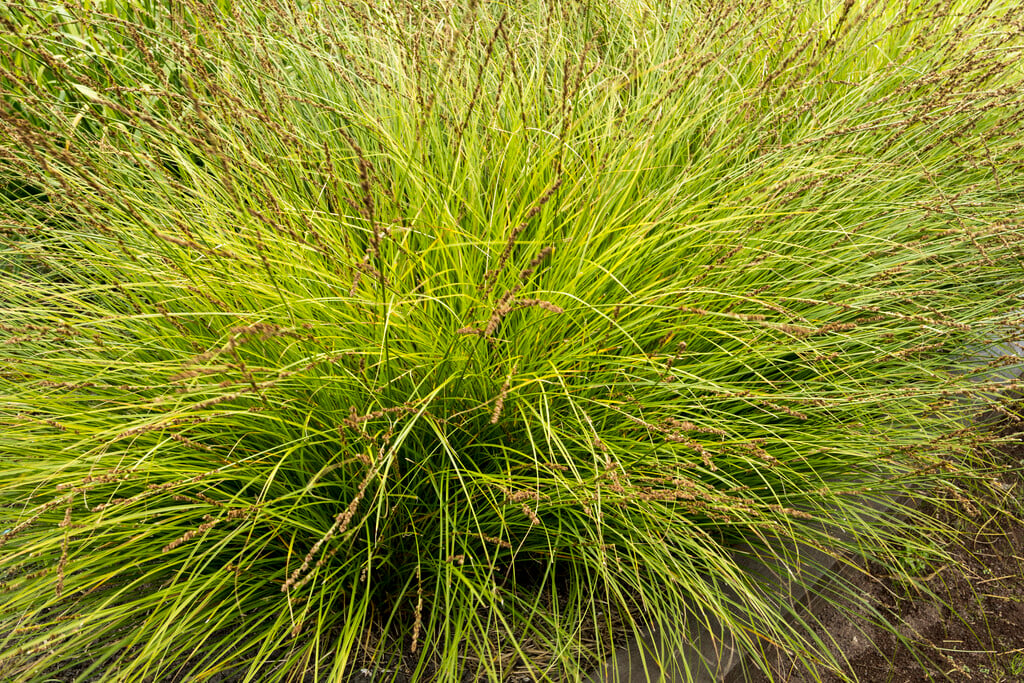Carex secta
Large, clump-forming, evergreen perennial sedge, young plants reaching about 60cm in height, older plants form thick trunks to 1.2m tall, producing arching fountains of bright green leaves, and pale brown flower spikes in early summer

Buy this plant
Size
Ultimate height
1–1.5 metresTime to ultimate height
2–5 yearsUltimate spread
0.5–1 metresGrowing conditions
Moisture
Moist but well–drained, Poorly–drainedpH
Acid, Alkaline, NeutralColour & scent
| Stem | Flower | Foliage | Fruit | |
| Spring | Green | |||
|---|---|---|---|---|
| Summer | Brown | Green | ||
| Autumn | Green | |||
| Winter | Green |
Position
- Full sun
- Partial shade
Aspect
South–facing or West–facing or East–facing
Exposure
Exposed or Sheltered Hardiness
H5Botanical details
- Family
- Cyperaceae
- Native to GB / Ireland
- No
- Foliage
- Evergreen
- Habit
- Clump forming, Tufted
- Genus
Carex can be deciduous or evergreen, rhizomatous or tufted perennials, with triangular stems bearing linear or strap-shaped leaves and short or long spikes of tiny green or brown flowers
- Name status
Correct
How to grow
Cultivation
Grows in a range of soils that retain moisture, in fertile moist but well-drained soil in full sun or part shade or in wet soils. Ideal for growing along pond margins. See ornamental grasses cultivation and bog gardening
Propagation
Propagate by seed in early spring or by division in mid spring to early summer
Suggested planting locations and garden types
- Coastal
- Cottage and informal garden
- Wildlife gardens
- Low Maintenance
Pruning
Cut out any dead leaves on evergreen species in summer
Pests
May be susceptible to aphids
Diseases
Generally disease-free
Get involved
The RHS is the UK’s gardening charity, helping people and plants to grow - nurturing a healthier, happier world, one person and one plant at a time.